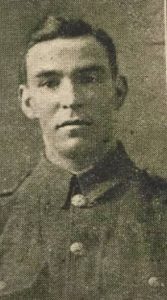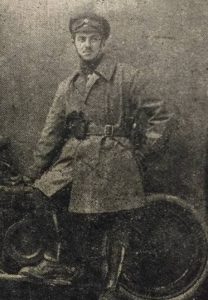
The National Savings Movement was a mass savings movement that operated in Britain between 1916 and 1978. It was used to finance the deficit of government spending over tax revenues. The movement provided an easy and safe way for ordinary people to save small sums of money, and was particularly active during wartime, when government spending was at its highest.
During World War II it was instrumental in raising funds to support the war effort – a War Savings Campaign was set up by the War Office to support the war effort.
People are responding extremely well
Posters such as this example by Tom Purvis (a British painter and commercials poster artist), were created to help promote local savings week campaigns. They led with titles such as “Lend to Defend the Right to be Free”, “Save your way to Victory” and “War Savings are Warships”.
Although the savings products promoted by the movement only offered a low level return, they did have the safety of a government guarantee. The movement grew to around 7 million members before ceasing during the 1970s as more modern methods of saving took over.
This article featured in the Bromley & District Times newspaper on the 26th July 1940 (page 5) and gave readers an insight into the amount raised through various campaigns, such as Saving Certificates and Defence Bonds.
National War Bonds
Last week a total of £13,139,250 was raised of which £4,064,656 was from the sale of Saving Certificates, £6,354,685 from the sale of Defence Bonds and £2,700,00 from an increase in the balance due to depositors in the Post Office Savings Bank and Trustee Savings Banks
Since the opening of the campaign £124,349,557 has been raised by the sale of Saving Certificates and £126,334,357 by the sale of Defence Bonds. During the same period the balance due to depositors in the Post Office Savings Bank and the Trustee Savings Banks has increased by £41,15,314 – a grand total of £291,799, 246
The Mayor of Bromley (Councillor Margaret Stafford-Smith, J.P.) told a Kentish Times representative on Wednesday morning that 160 savings groups have now been formed in the borough.
She was also able to give the latest statistics showing the total savings in National Certificates, Defence Bonds, National War Bonds, and deposits in the Post Office Savings Bank from January 1, 1940, to the middle of July.
The savings in the six months have amounted to £20,000 a week, the total being £527,867.
The amount saved in the first week of July was £73,475 and in the second week £38,185.
Included in the total is an amount of £1,600 National War Bonds.
Associations are being organised in roads and collectives are calling on householders.
“People are responding extremely well,” added the Mayor.
Householders are asked to give courteous attention to the collectors when they call, even if members of the family are saving in other ways.
The Savings Committee have set up a National War Bonds Sub-committee to encrouage the sale of 2 1/2 per cent, National War Bonds. Mr A.F. Hobbins is the hon. secretary.





